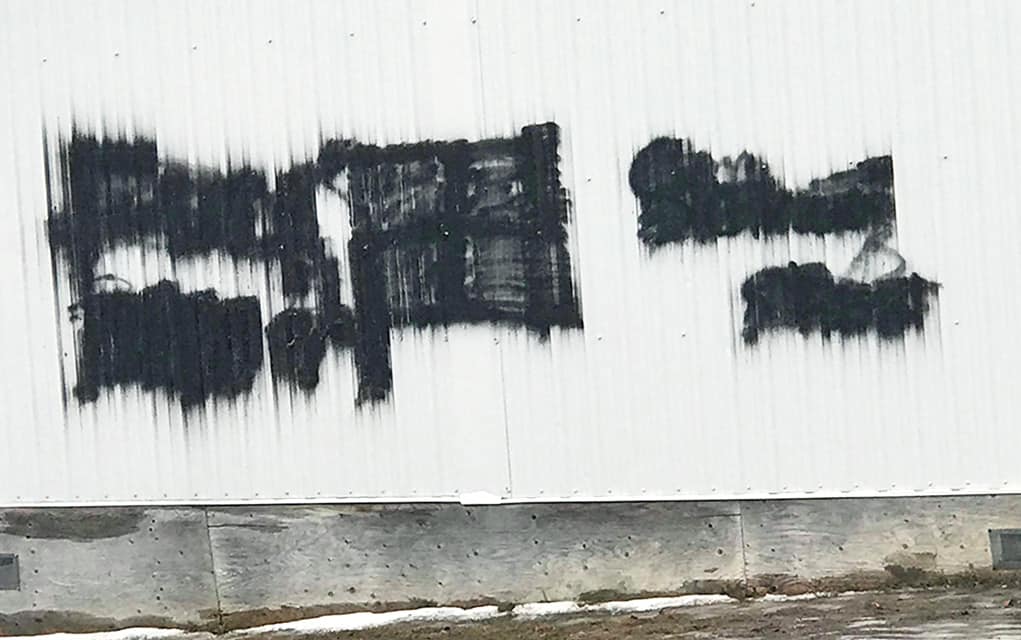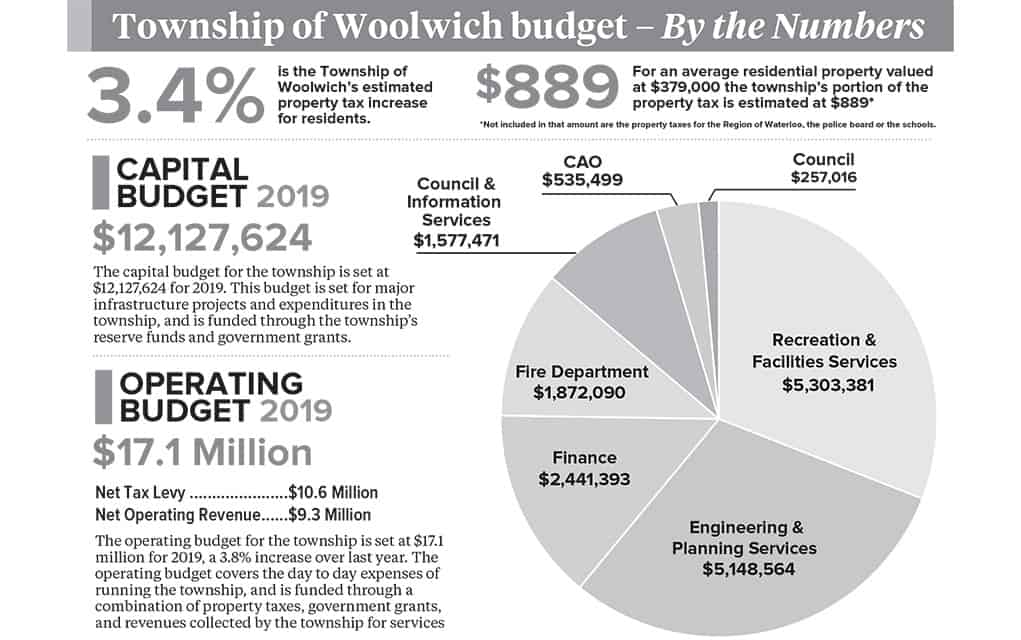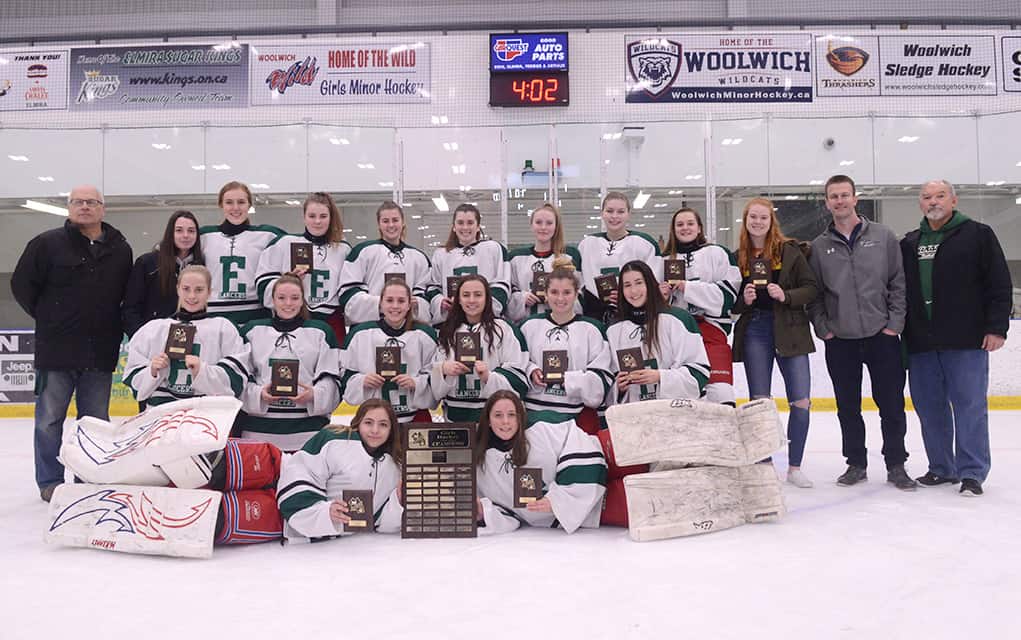Not an isolated incident, the recent case of threatening graffiti at Wellesley Public School prompted police and school board officials to host a public meeting to discuss hate crimes, statistics, trends and reporting incidents.

Tuesday’s meeting was also a chance for the community to ask questions and share concerns.
Waterloo Regional Police are treating as a hate crime the February 4 incident that saw a swastika, profanity and racial slurs spray painted on the building.
While no arrests have been made in this incident as of yet, the investigation remains ongoing. Police are encouraging anyone with information to come forward, either directly to police or anonymously through Crime Stoppers.
“These occurrences are – we had the detective working on it – they’re really hard to solve,” said Sgt. Ryan Leslie, who heads the Waterloo Regional Police hate crime unit. “Because where do we find our witnesses, it’s rare there’s a camera back there, you don’t get fingerprints off graffiti. They’re difficult occurrences to solve, but they’re solvable.”
The incident prompted plenty of conversations surrounding what had happened and the content around the message, in a community where this type of incident is virtually unheard of. Wellesley PS principal Brian Beney said that speaking to the students about the graffiti was varied in the aftermath depending on a student’s age.
“I can say in this specific incident that it brought the conversation up,” said Beney. “We treated it age-appropriately – conversations that happened in Grade 1 and 2 were different than the ones we had in Grade 7 and 8, but I think we had a lot of good conversations. It’s unfortunate that something like this had to bring that topic up, because this is something we want all of our kids to embrace, acknowledge and be able to talk about in their homes, with their friends.”
Regional statistics were provided to give context: there were 53 occurrences of hate crimes reported in Waterloo Region in 2017, the most recent year for which full statistics are available. Out of that number, 33 took the form of graffiti. The most common types of graffiti content include a swastika and the n-word, which aligned with the Wellesley PS incident.
“That’s one of the reasons that research shows: that it’s recognizable, a symbol like the swastika because it’s so well-known, ever since Hitler adopted it as the emblem for the Nazi party, it’s also considered ‘shock’ graffiti,” said Kristen Little, an open source analyst at Hate Crime & Extremism Investigative Team. “So people that do it for whatever reason they do it, they know that it’s going to get a reaction, they know it’s going to get media coverage.”
Across Canada in 2017, there were 2,073 hate crimes reported to police, a noticeable increase from previous years, with the majority of incidents taking place in Ontario and Quebec.
Staff were quick to add the statistics may not necessarily be reflective of the community, as hate crimes can often go underreported. Factors that affect hate crime include public perception: if people think that the police are not going to be interested, they may be less likely to report the incident. Population growth, global and political climate, and education surrounding the process and importance of reporting incidents all affect hate crime and statistics.
“Graffiti like this on a school does affect a broader community,” said Leslie. “Not just folks in Wellesley, which is a tight-knit community. It affects people in the Waterloo Region; it affects my friends in downtown Kitchener. Hate crime doesn’t just affect the person across the street who can see it from their backyard.”
Deepa Ahluwalia, equity officer with the Waterloo Region District School Board, also encouraged parents to use this incident as an opportunity to speak to their children about race.
“When this school was vandalized with those hateful messages, that was a great opportunity to teach them about what sort of thinking is unacceptable and why someone may have done something so terrible,” said Ahluwalia. “Silence creates tolerance. In summary, please know that it’s okay to engage in those conversations about race and racism. Yes, it’s going to feel uncomfortable, but we all must lean into that discomfort because that’s the only way things are going to change.”
Anyone with information can contact police at 519-570-9777 or anonymously through Crime Stoppers at 1-800-222-8477. Alternatively, tips can be submitted online.








